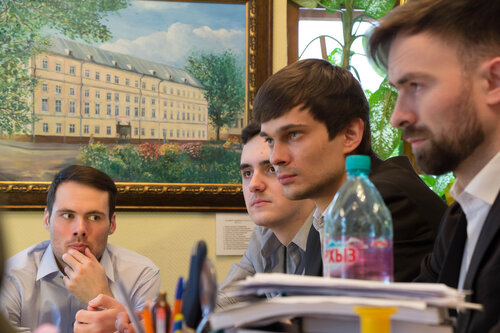Writers of the 20th century (The USA, Great Britain, Germany):
1) Theodore Dreiser
Theodore Herman Albert Dreiser (August 27, 1871 вАУ December 28, 1945) was an American novelist and journalist of the naturalist school. Dreiser's best known novels include Sister Carrie (1900) and An American Tragedy
2) Ernest Hemingway
Ernest Miller Hemingway (July 21, 1899 вАУ July 2, 1961) was an American journalist, novelist, short-story writer, and sportsman. Hemingway produced most of his work between the mid-1920s and the mid-1950s, and he won the Nobel Prize in Literature in 1954. He published seven novels, six short-story collections, and two nonfiction works. Many of his works are considered classics of American literature.
Selected list of works:
(1926) In Our Time
(1927) The Sun Also Rises
(1929) A Farewell to Arms
(1937) To Have and Have Not
(1940) For Whom the Bell Tolls
(1951) The Old Man and the Sea
I suggest the above kind of list we introduce into other writers' list. The writers could be listed according to the dates of their lives and work.
3) John Steinbeck
John Ernst Steinbeck Jr. (February 27, 1902 вАУ December 20, 1968) was an American author. He won the 1962 Nobel Prize in Literature "for his realistic and imaginative writings, combining as they do sympathetic humour and keen social perception." He has been called "a giant of American letters," and many of his works are considered classics of Western literature.
During his writing career, he authored 33 books, including 16 novels, six non-fiction books, and two collections of short stories. He is widely known for the comic novels Tortilla Flat (1935) and Cannery Row (1945), the multi-generation epic East of Eden (1952), and the novellas The Red Pony (1933) and Of Mice and Men (1937). The Pulitzer Prize-winning The Grapes of Wrath (1939) is considered Steinbeck's masterpiece and part of the American literary canon.
4) Eugene O'Neill
Eugene Gladstone O'Neill (October 16, 1888 вАУ November 27, 1953) was an American playwright and Nobel laureate in Literature. The drama Long Day's Journey into Night is often numbered on the short list of the finest U.S. plays in the 20th century.
5) Erich Maria Remarque
Erich Maria Remarque (born Erich Paul Remark; German; 22 June 1898 вАУ 25 September 1970) was a 20th-century German novelist. His landmark novel All Quiet on the Western Front (1928), about the German military experience of World War I, was an international best-seller which created a new literary genre.
List of works:
(1936) Drei Kameraden; English translation: Three Comrades
(1945) Arc de Triomphe; English translation: Arch of Triumph
(1962) Die Nacht von Lissabon; English translation: The Night in Lisbon
6) Ray Bradbury
Ray Douglas Bradbury (August 22, 1920 вАУ June 5, 2012) was an American author and screenwriter. He worked in a variety of genres, including fantasy, science fiction, horror, and mystery fiction.
Predominantly known for writing the iconic dystopian novel Fahrenheit 451 (1953), and his science-fiction and horror-story collections, The Martian Chronicles (1950), The Illustrated Man (1951), and the novel Dandelion Wine (1957), Bradbury was one of the most celebrated 20th- and 21st-century American writers.[2]
7) John Galsworthy
John Galsworthy (14 August 1867 вАУ 31 January 1933) was an English novelist and playwright. Notable works include The Forsyte Saga (1906вАУ1921) and its sequels, A Modern Comedy and End of the Chapter. He won the Nobel Prize in Literature in 1932.
8) Jack London
John Griffith London (born John Griffith Chaney; January 12, 1876 вАУ November 22, 1916) was an American novelist, journalist, and social activist. His most famous works include The Call of the Wild and White Fang, both set in the Klondike Gold Rush, as well as the short stories "To Build a Fire", "An Odyssey of the North", and "Love of Life". He also wrote about the South Pacific in stories such as "The Pearls of Parlay", and "The Heathen".
9) Mark Twain
Samuel Langhorne Clemens (November 30, 1835 вАУ April 21, 1910), known by his pen name Mark Twain, was an American writer, humorist, entrepreneur, publisher, and lecturer. He was lauded as the "greatest humorist [the United States] has produced", and William Faulkner called him "the father of American literature". His novels include The Adventures of Tom Sawyer (1876) and its sequel, the Adventures of Huckleberry Finn (1884), the latter often called "The Great American Novel".





